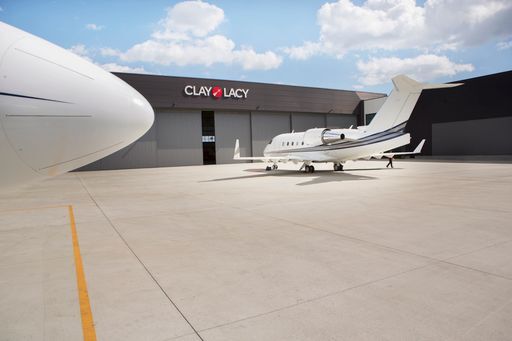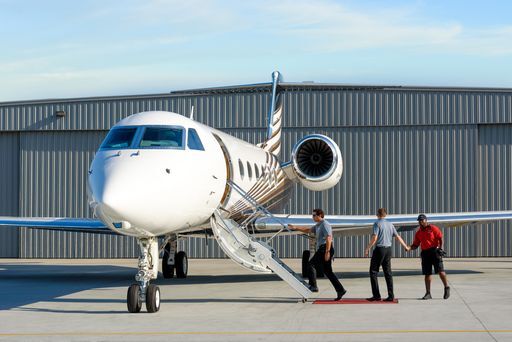Taking that major step into jet ownership can be a great experience—or it can prove a costly, stressful nightmare. Whether you have owned a fractional share or jet card, or have been chartering for years, here are six crucial questions to answer before you buy.
1. Do You Fly at Least 100 Hours Annually?
Purely from a cost perspective, if you are not flying at least 100 hours a year, you should not consider buying a jet—unless you simply wish to own your own plane and money is no object. Under the 100-hour mark, fractional, jet card, or charter makes greater financial sense. But if you’re flying more than 100 hours annually, ownership could be right for you depending on your travel patterns and other requirements, such as size of aircraft, schedule flexibility, and ability to benefit from depreciation.
2. Are You Imagining Your Jet as a Money Maker?
Plenty of people will say you can “make money” owning a business jet. Don’t believe the hype. You may see some years with positive cash flow, but any gains will be erased quickly with higher maintenance costs, refurbishments, and lower residual value when you ultimately exit aircraft ownership. Not to mention higher crew turnover, lower dispatch reliability, and less schedule flexibility when trying to book all those additional charter hours on your jet. When done properly, chartering your plane when not in use can significantly lower your cost of ownership, in some cases by up to 80%, which is why charter is such a useful tool to most jet owners.

3. Are You Budgeting Beyond the Purchase Price?
One of the biggest mistakes prospective owners make is focusing on the purchase price, without equal consideration for ongoing maintenance and operational costs. After all, you can purchase a 13-passenger Gulfstream GIV-SP for $2 million, or a midsize Cessna Citation XL for only $1 million. There is a reason these planes are transacting at such low prices: The annual cost of maintenance and operations can easily exceed their purchase price. Why? Planes, unlike automobiles, have a preset, mandatory maintenance schedule. Every so many hours or months, certain inspections must be conducted. The older the plane, the more frequent and more extensive these inspections become. This leads to more downtime and higher costs of operation. It doesn’t mean these planes are not a good purchase decision when all factors are properly planned for. I am simply highlighting the importance of a true understanding of annual operating costs rather than fixating on the purchase price. Conversely, a new jet has a higher entry price, but comes with a hearty warranty and support and care from the manufacturer.
4. Do You Have an Aviation Broker, Attorney, CPA, and Management Company?
You need all four of these aviation professionals working together on your behalf. They are key to your enjoyment of aircraft ownership. I strongly encourage you to have these relationships in place before you begin the search for your business jet. An aviation broker, attorney, CPA, and management company will help you find the right plane and pilots, maximize tax benefits, and ensure a seamless, worry-free exit from ownership when the time comes. They also provide excellent checks and balances on each other to ensure transparency, not only in the acquisition but the ongoing operation of your jet.
-
-
- An aviation attorney and aviation CPA will guide you on aircraft ownership with the most benefit from a tax perspective, and limit your liability. Aviation is a highly regulated industry, so engaging an attorney or CPA who does not have specific and extensive aviation knowledge is a big mistake.
- The aircraft broker will guide your search for the jet, taking into consideration your flying needs, budget, and timing.
- The aircraft manager, with the management company, will assemble and manage your annual operating budget, which includes fuel, pilots, subscriptions, warranties, and maintenance. They will also recruit, interview, and coordinate training for your crew.
-

For more information on these experts and how they reinforce and complement each other, see our recent article on claylacy.com, “The Aviation Professionals Every Jet Owner Needs.”
5. Should You Consider a Back-to-Back Transaction?
A back-to-back is when title to the aircraft passes from the seller to an intermediary, then to the buyer. The intermediary in most cases is the aircraft broker. The broker is buying the jet from the seller, putting in a markup for themselves, then selling it to the buyer. The transactions happen simultaneously, and many times are never disclosed to the buyer or seller. This most frequently occurs when the buyer or seller is unwilling to pay the aircraft broker a fair price for their services, or when an aircraft broker says they will obtain their fee from the other party. That said, there is nothing fundamentally wrong with a back-to-back so long as all parties understand the transaction details.
6. Can You Skip the Pre-purchase Inspection?
No, never. Anytime you purchase an aircraft, you should insist on a thorough pre-purchase inspection at a reputable maintenance shop with experience in that specific make and model of jet. In my 23 years in the aviation industry, I have never heard of a positive experience when a pre-purchase inspection was skipped or expedited. Undisclosed accidents and repairs, inaccurate or incomplete maintenance logs, and illegal modifications are just some of the problems you may find later if you skip a pre-purchase inspection. If someone is advising you that a pre-purchase inspection is not needed because the plane just went through an intense inspection, run away from that person as fast as you can.
Also, it is in your best interests for the aircraft management company to have a representative physically present during the pre-purchase inspection. After all, you are tasking them with the ongoing maintenance and operation of your jet. This is their opportunity to truly understand the condition of the plane in order to assemble an accurate operating budget.

Ready to Own a Jet?
Jet ownership is the unquestioned pinnacle of air travel. Nothing else offers total freedom and control, safety and privacy, comfort and convenience, prestige and peace of mind. And if owning a jet makes sense for you or your business, there are many excellent options, from light and midsize jets to large-cabin, transcontinental aircraft. Just make sure that your expert aviation team is in place and ready to put their knowledge to work for you.
Scott Cutshall is a third-generation pilot with expertise across a wide spectrum of disciplines in business aviation. Read more of Scott Cutshall’s Thought Leadership here.














































